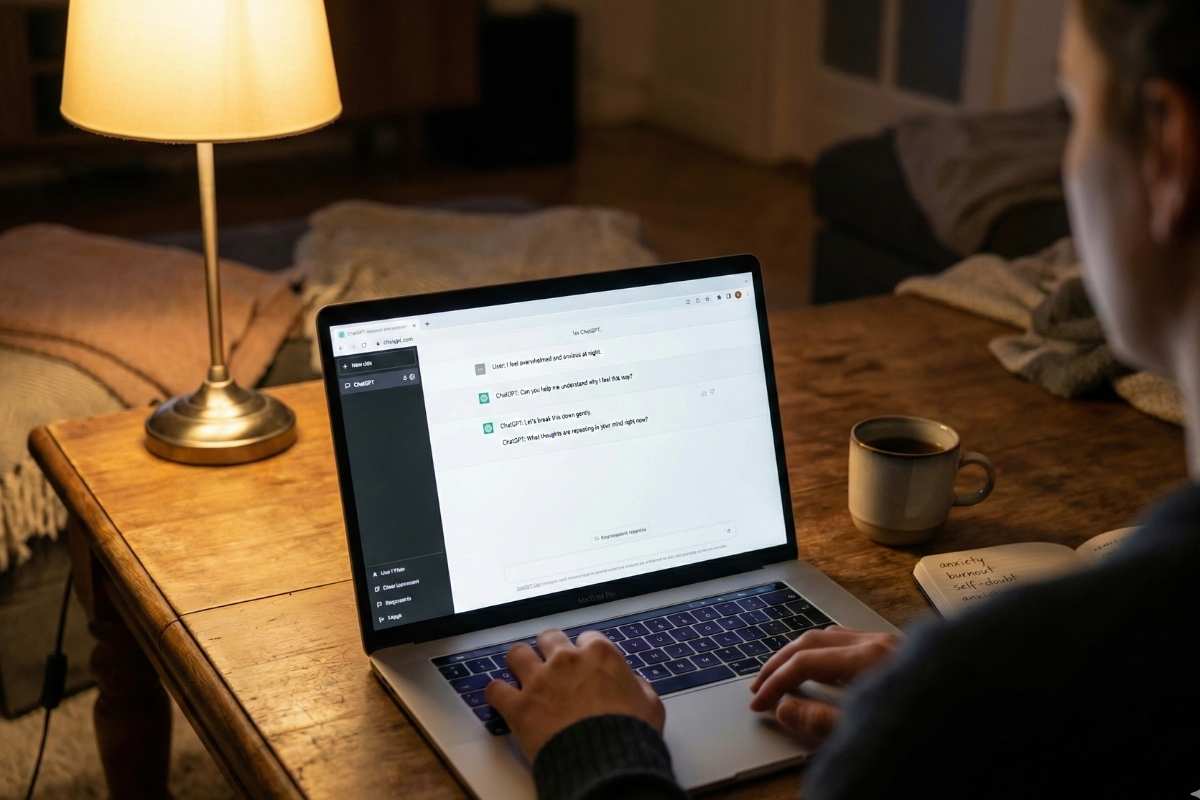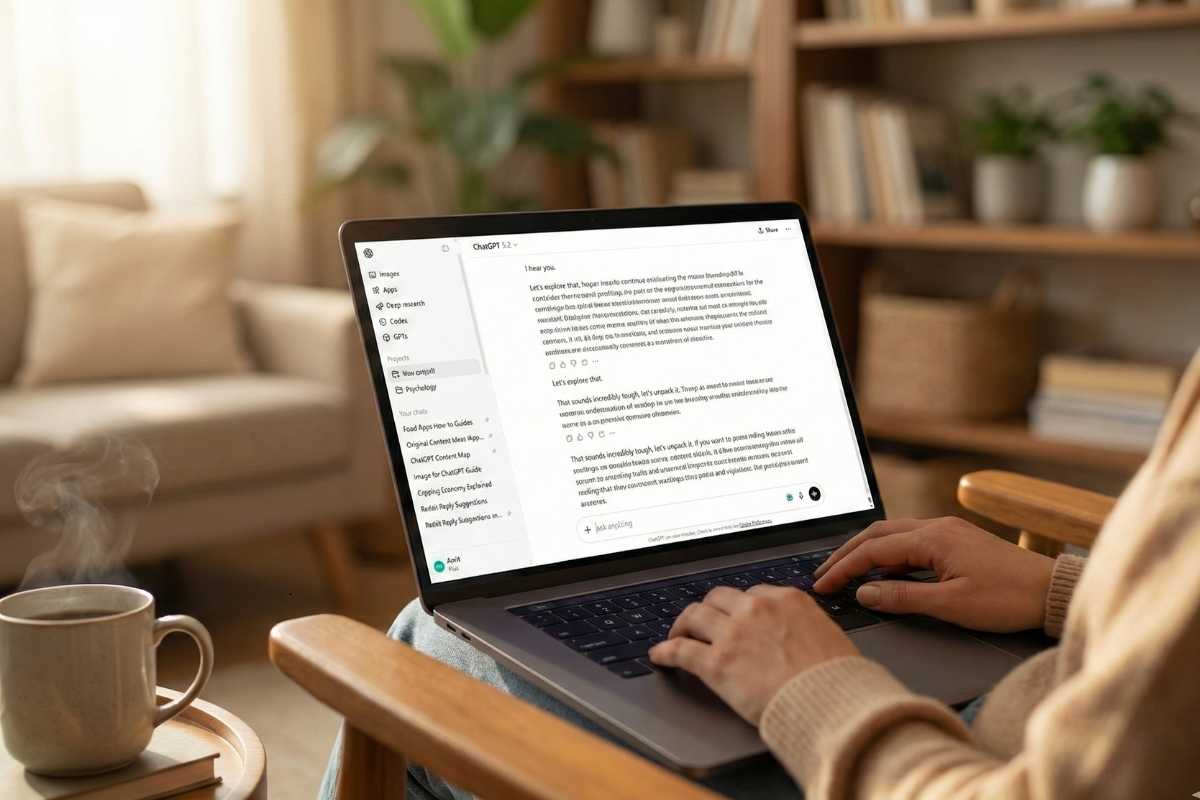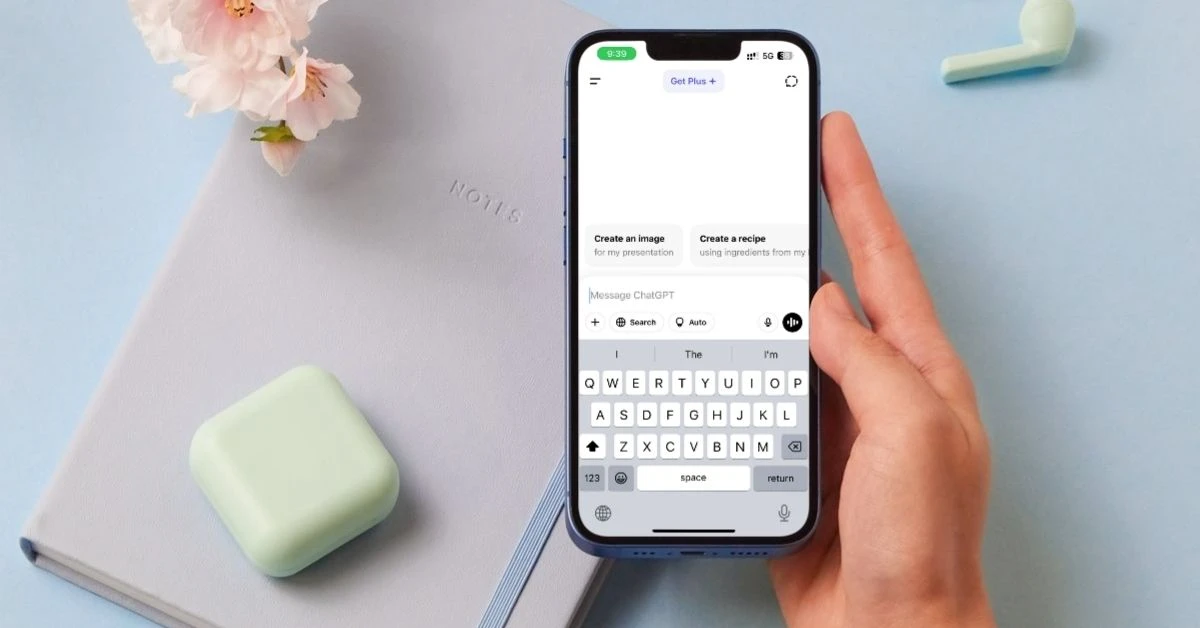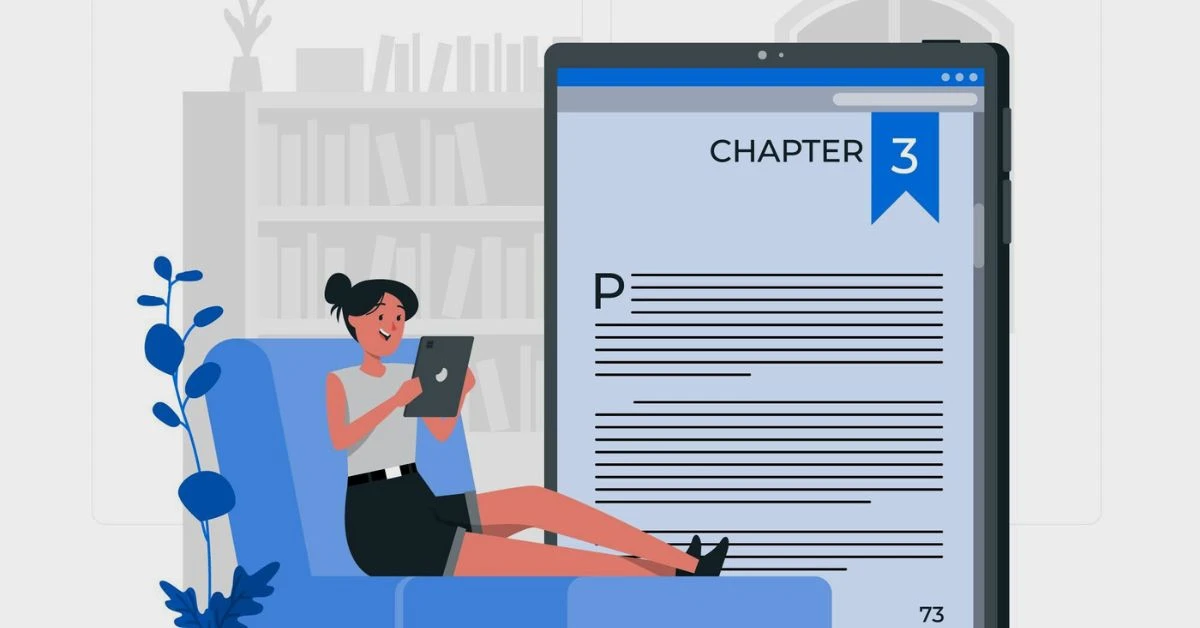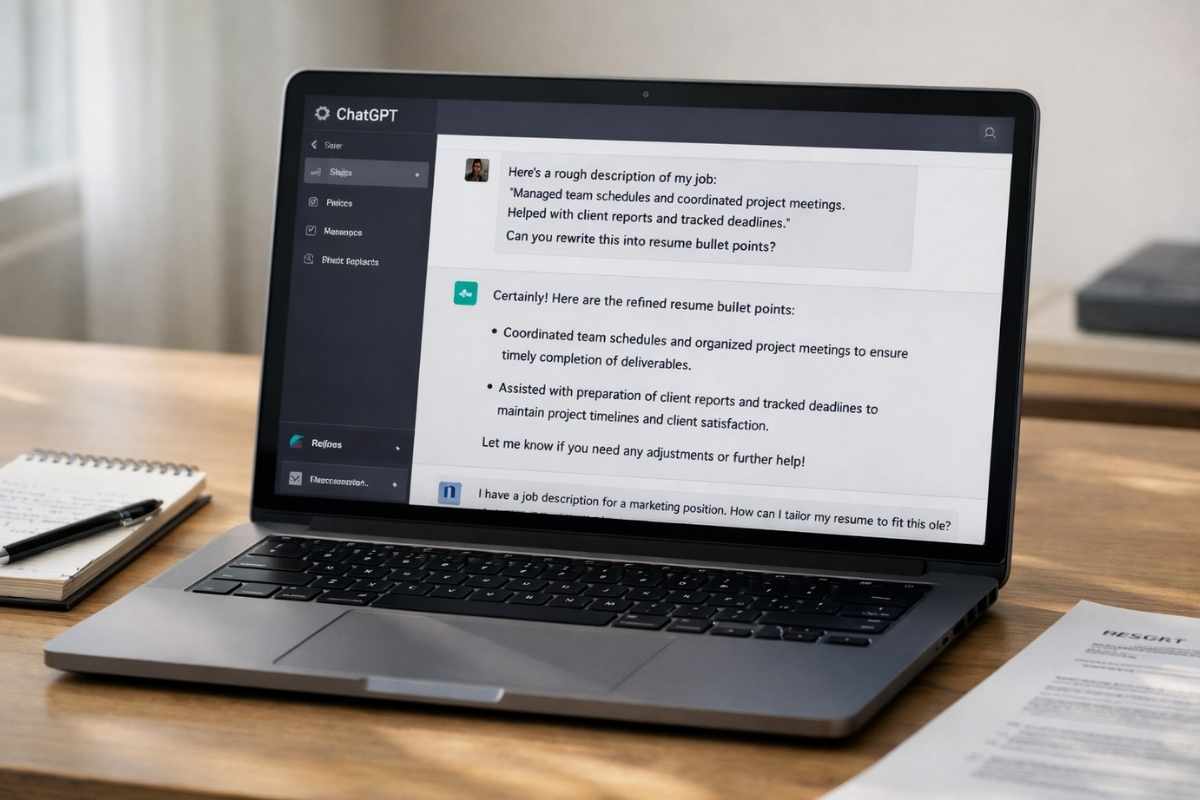How to Use ChatGPT for Students Like a Pro
I still remember the first time I used ChatGPT to help with a tricky research topic.
I wasn’t trying to cheat or cut corners.
I just wanted to actually get it.
And it clicked.
That’s when I realized, AI isn’t just some shiny tech trend.
It’s a study tool with massive potential if you know how to use it right.
The truth?
Most students aren’t even scratching the surface.
Some use ChatGPT just to get their homework done faster.
Others copy-paste answers and hope they don’t get flagged.
But the really smart ones are using it to learn better, not just finish tasks.
This guide is for students who want more than shortcuts.
It’s for anyone ready to turn ChatGPT into a true academic sidekick.
Here’s what you’ll find inside:
- Smart prompt ideas for different subjects and study goals
- Real-life ChatGPT workflows to save time and boost comprehension
- Ethical tips so you’re using AI the right way
- Underrated features, cheatsheets, and pro-level tricks
If you’re ready to go from just “using ChatGPT” to truly mastering it, let’s dive in.
What ChatGPT Can (and Can’t) Do for Students
Before diving into pro-level strategies, it’s important to set clear expectations.
ChatGPT is powerful — no doubt.
But knowing where it excels (and where it has limits) helps you use it smarter, not harder.
1. What ChatGPT Can Do Really Well
- Explains Complex Topics Simply: Ask it to break down hard concepts in easy language. Example: “Explain Newton’s Third Law like I’m 12.”
- Summarize notes and Textbooks: Paste long content, and it’ll turn it into quick, clear summaries.
- Helps with Essay Writing and Editing: It can suggest thesis ideas, outline essays, fix grammar, and improve tone.
- Generates Quizzes and Flashcards: Ask for multiple-choice questions, key terms, or flashcard-style content for self-testing.
- Create Study Plans and Productivity Tips: You can get custom Pomodoro routines or ADHD-friendly study schedules.
- Assists with Language Learning: It translates sentences, explains grammar rules, and corrects writing.
- Solves Math and Science Problems: Get step-by-step help for equations, especially useful for high school-level questions.
2. What ChatGPT Can’t Do (At Least, Not Perfectly)
- Replace Your Own Understanding: Copying answers won’t help during exams. Learn with it, don’t rely on it blindly.
- Guarantee 100% Accuracy: It can make mistakes, especially with detailed or technical subjects.
- Bypass School Rules: Many schools have strict rules around AI use — always check before using it.
Use Cases: How to Use ChatGPT for Real Academic Needs
ChatGPT isn’t just some cool tech.
It’s here to make your academic life easier and more productive.
From real-life study scenarios to tackling tricky assignments, I’ve shared sample prompts to help you get started.
And if you want more ideas, check out my full prompt guide with 200+ prompts made just for students.
1. Understanding Concepts
Whether you’re stuck on a science topic or can’t quite grasp a historical event, ChatGPT can break things down clearly.
Sample Prompts:
- Explain the water cycle like I’m in 6th grade.
- Summarize the causes of World War I in simple terms.
- What’s the difference between mitosis and meiosis?
- Help me understand the Pythagorean Theorem with an example.
- Turn this textbook paragraph into a simple analogy: [paste paragraph]
2. Homework Help & Problem Solving
From tricky math questions to grammar corrections, ChatGPT is your go-to for assignment support, without spoon-feeding answers.
Sample Prompts:
- Solve this equation step-by-step: (2x + 3)(x – 4) = 0
- Paraphrase this paragraph in simpler words: [paste text]
- Correct this for grammar and clarity: [paste paragraph]
- Help me write a 200-word summary on the French Revolution.
- What’s the meaning of this poem stanza? [paste lines]
3. Exam Prep & Quizzing
Need practice before a test?
Let ChatGPT quiz you, build flashcards, or generate sample MCQs.
Sample Prompts:
- Create a 10-question multiple-choice quiz on the Cold War (with answers).
- Quiz me on the major concepts in Chapter 5 of AP Biology.
- Give me a list of must-know formulas for physics.
- Generate 10 flashcards based on this topic: [paste topic]
- Ask me 5 true/false questions about the American Revolution.
4. Essay Writing & Editing
Need to brainstorm ideas or polish your writing?
ChatGPT can help with everything from outlines to persuasive rewrites.
Sample Prompts:
- Give me 5 thesis statement ideas on climate change.
- Outline a 5-paragraph essay about the pros and cons of social media.
- Rewrite this intro to sound more persuasive: [paste text]
- What’s a better hook for this topic: [paste topic]
- Improve the tone and clarity of this paragraph: [paste paragraph]
If you need more, here are 150+ ChatGPT prompts for writing that I use.
You should also check out my guide on the best AI writing apps for iPhones.
It’s worth a look.
5. Language Learning
ChatGPT is great for learning new languages—whether it’s vocabulary, translation, or grammar explanations.
Sample Prompts:
- Translate this sentence to Spanish and explain the grammar: ‘I am going to school.’
- What are 10 common French phrases I should know?
- Test me on German irregular verbs.
- Give me 5 idioms in Italian and what they mean.
- Correct this sentence in Japanese and explain the mistake: [paste sentence]
If you’re serious about learning a new language like I was, these apps are the ones I swear by.
Give them a try.
6. Time Management & Study Planning
Get help organizing your study life with personalized schedules and productivity techniques.
Sample Prompts:
- Create a 5-day study plan for my history exam on Friday.
- Help me organize my tasks using the Pomodoro technique.
- Make an ADHD-friendly study schedule for today.
- Break this study goal into smaller tasks: [paste goal]
- Suggest a daily routine for balancing school, gym, and part-time work.
Real-Life Workflows Using ChatGPT
You’ve got the prompts.
But how do you actually put ChatGPT to work during your study sessions?
Let’s walk through some realistic workflows that show how students can integrate ChatGPT into their daily academic grind.
Workflow 1: A High Schooler’s Study Day Before Exams
Scenario: It’s Monday. You’ve got biology and history exams on Friday. You’ve made zero progress. Time to turn it around.
Morning:
- 8:00 AM: Ask ChatGPT to create a 5-day exam study plan for biology and history.
- 8:30 AM: Use ChatGPT to summarize Chapter 4 of your biology textbook into bullet points.
- 9:00 AM: Ask it to explain osmosis like you’re in 9th grade — because the textbook isn’t clicking.
Afternoon:
- 1:00 PM: Have ChatGPT generate 10 flashcards for history (topic: WWI causes).
- 2:00 PM: Ask for a mock multiple-choice quiz on the same topic.
- 3:00 PM: Use ChatGPT to suggest a Pomodoro-style study schedule for the evening.
Evening:
- 6:00 PM: Ask ChatGPT to quiz you with short-answer questions from biology.
- 8:00 PM: End the day by asking ChatGPT for 5 calming affirmations to reduce exam stress.
Workflow 2: A College Student Writing a 2-Day Research Essay
Scenario: You’ve been assigned a 2,000-word paper on “The impact of social media on mental health.” Here’s how ChatGPT helps you pull it off without the panic.
Day 1 – Research & Outline:
- 9:00 AM: Ask ChatGPT for 5 research angles on the topic.
- 10:00 AM: Request a detailed outline based on your chosen angle.
- 11:00 AM: Use ChatGPT to summarize academic articles you paste into the chat.
- 1:00 PM: Brainstorm thesis statements and choose the one that fits best.
- 3:00 PM: Ask for a topic sentence suggestion for each body paragraph.
- 4:00 PM: Create a to-do checklist for tomorrow’s writing session.
Day 2 – Writing & Editing:
- 9:00 AM: Write your draft using yesterday’s outline, then use ChatGPT to refine your intro and transitions.
- 11:00 AM: Paste paragraphs one by one to improve tone, clarity, or grammar.
- 2:00 PM: Ask ChatGPT to generate a conclusion based on your essay points.
- 3:00 PM: Use it to proofread the full draft, checking for flow, passive voice, and wordiness.
Workflow 3: ChatGPT + Notion + Timer = Ultimate Productivity
Scenario: You’re juggling multiple classes, deadlines, and a part-time job. This system helps keep your head on straight.
Your Tools:
- ChatGPT: for instant clarity, idea generation, and organization.
- Notion: for keeping all your tasks, notes, and goals in one place.
- Pomodoro Timer App (like Focus Keeper): for structured focus sessions.
Your Daily Flow:
- Morning Brain Dump in Notion:
- Ask ChatGPT: “List everything I should do today based on this to-do list.”
- Organize it into a daily planner inside Notion.
- Ask ChatGPT: “List everything I should do today based on this to-do list.”
- Task Blocks (Pomodoro Style):
- 25 minutes: Write a paragraph → Use ChatGPT to improve or restructure.
- 5-minute break: Ask ChatGPT for a quick motivational quote or productivity tip.
- 25 minutes: Write a paragraph → Use ChatGPT to improve or restructure.
- Afternoon Sprint:
- Need research? Ask ChatGPT: “Summarize key ideas on [topic] for my essay.”
- Copy-paste clean summaries into Notion notes.
- Need research? Ask ChatGPT: “Summarize key ideas on [topic] for my essay.”
- Evening Review:
- Use ChatGPT: “Summarize everything I studied today in 5 bullet points.”
- Add the summary to your Notion study log.
- Use ChatGPT: “Summarize everything I studied today in 5 bullet points.”
Ethical Use & Academic Integrity
Let’s be real — ChatGPT is powerful.
But with great power comes great responsibility, especially when it comes to academic integrity.
Here’s what students need to know about using AI tools the right way.
1. Copying Answers Blindly Doesn’t Work
Sure, ChatGPT can whip up an essay or solve a math problem in seconds. But just copy-pasting the answer?
That’s not learning — and it won’t help you in the long run.
- You won’t remember it on test day.
- You’ll miss out on actually understanding the topic.
- Your teachers (and AI detectors) will catch on fast.
Think of ChatGPT as your learning assistant, not your shortcut.
2. School Policies & AI Detection Tools
Many schools and colleges are actively updating their academic policies to address AI-generated content.
Plagiarism detectors and AI content detectors (like Turnitin’s AI checker) are being used more than ever.
Some important points to keep in mind:
- Always check your school’s policy on AI tools.
- If a professor says “no AI,” don’t risk it; even helpful use can count as misconduct.
- Be transparent. If you used AI to brainstorm or get feedback, that’s often acceptable as long as the final work is your own.
3. Use ChatGPT as a Study Partner, Not a Cheat Sheet
There’s a smart and ethical way to use ChatGPT, and it starts with intention.
Here’s how to do it right:
- Use it to simplify complex topics so you can understand them on your own.
- Get help with organizing your ideas, not generating entire essays.
- Ask it to quiz you so you can test what you’ve learned, not skip learning altogether.
- Treat it like a study buddy who’s great at explaining stuff, but you’re still doing the real work.
At the end of the day, the goal is not just to get the grades but to actually learn something meaningful.
Top Tools That Work Great with ChatGPT for Students
ChatGPT is amazing on its own, but when you combine it with other productivity tools, you get a study setup that’s seriously next-level.
Whether you’re organizing your notes, improving your writing, or making flashcards, these tools can work with ChatGPT, not just alongside it.
1. Notion AI – For Planning, Organizing, & Note-Taking
Notion already lets students manage notes, to-do lists, and databases.
Add ChatGPT to the mix, and you can:
- Ask ChatGPT to create a study schedule → Paste it right into Notion.
- Use it to summarize class notes and store the summaries.
- Brainstorm essay outlines in ChatGPT → format them cleanly in Notion.
Pro Tip: If you use the Notion Web Clipper, you can ask ChatGPT to summarize clipped articles too.
2. Grammarly – For Polishing Essays & Assignments
Even though ChatGPT can improve grammar, Grammarly is still your go-to for:
- Real-time grammar and tone suggestions while writing in Google Docs.
- Spotting passive voice, repetitive words, and unclear phrasing.
- Catching small errors that ChatGPT might overlook.
3. Otter.ai – For Recording & Transcribing Lectures
If you’re a student who prefers audio or attends live lectures:
- Use Otter.ai to record and transcribe classes or study group discussions.
- Paste those transcripts into ChatGPT and ask it to:
- Summarize key points
- Explain unfamiliar terms
- Create quiz questions based on the lecture
This is perfect for auditory learners who want to turn long recordings into bite-sized content.
4. Anki or Quizlet – For Flashcards & Memorization
Repetition is key when studying definitions, vocab, formulas, or historical dates.
- Ask ChatGPT to generate flashcards from your notes or textbook.
- You can even prompt ChatGPT: Give me 20 flashcards on the human digestive system in Q&A format.
This combo is especially helpful for subjects like biology, chemistry, and languages.
FAQs
1. Is it okay to use ChatGPT for schoolwork?
Yes, as long as you use it ethically. It’s perfectly fine to use ChatGPT to explain concepts, get study help, brainstorm ideas, or improve writing. Just don’t copy entire assignments word-for-word, especially if your school has policies against AI-generated content.
2. Will my school know if I use ChatGPT?
Possibly. Some schools use AI detection tools like Turnitin or GPTZero to check for AI-written content. If you’re just using ChatGPT to help you understand topics or edit your work, you’re usually safe. When in doubt, ask your teacher or check your school’s policy.
3. Can ChatGPT help with math homework?
Definitely. ChatGPT can walk you through equations, solve problems step by step, and explain formulas in simple terms. It’s great for understanding how to solve problems, not just for giving the final answer.
4. Can I use ChatGPT to write essays?
You can use it to generate outlines, thesis statements, or help with drafts, but the final essay should be your own. Use ChatGPT as a writing assistant, not a full-on essay writer.
5. Is ChatGPT better than Google for studying?
Sometimes. ChatGPT is better for personalized, conversational explanations and generating structured responses. But for up-to-date facts or verifying sources, Google still wins.
6. Can ChatGPT help me study faster?
Yes. It can save time by summarizing long texts, helping you plan your schedule, and giving quick answers to your questions. Pair it with tools like Notion or Quizlet for maximum productivity.
7. Is ChatGPT free for students?
Yes, the basic version is free. But there’s a paid version (ChatGPT Plus) that gives access to GPT-4, which is faster and more accurate. The free version is still great for most students.
8. Can ChatGPT translate and explain grammar?
Absolutely. You can ask it to translate sentences and explain grammar rules step-by-step — great for learning languages like Spanish, French, or German.
My Final Take
Over the past few months, I’ve used ChatGPT for everything.
And here’s what I’ve learned: ChatGPT is only as powerful as the way you use it.
It’s not here to do the work for you.
It’s here to work with you.
Ask it thoughtful questions.
Use it to explore topics, not just finish assignments.
Let it challenge your thinking, not replace it.
The students who get the most out of ChatGPT aren’t the ones copy-pasting answers.
They’re the ones building better habits around it.
They’re combining it with their own notes, asking follow-up questions, and using it to truly understand, not just to complete.
If you’re serious about learning smarter, make ChatGPT part of your process.
Use it to sharpen your thinking.
Build confidence.
Stay curious.
That’s how you turn AI into an actual advantage.
And not just another app on your phone.
That’s all for now.
If there’s anything you’d like to discuss or share, feel free to bring it up.
I’m always open to a conversation.

